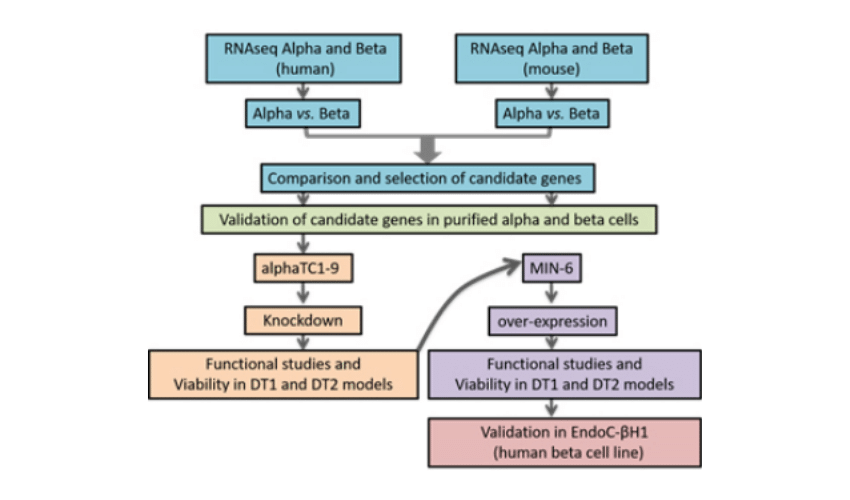“Discovery of new therapeutic targets for the treatment of type 1 and type 2 diabetes based on pancreatic alpha cell survival strategies”
Diabetes is a metabolic disease that has already reached the global pandemic level and affects glucose metabolism, either due to the specific loss of the beta cell by autoimmune mechanisms (type 1 diabetes, DT1) or due to the functional loss of the cell beta due to continued overexposure to metabolic stress caused by the persistence of high levels of saturated fatty acids and plasma glucose (type 2 diabetes, DT2). Due to these unfavorable conditions to which the islets of Langerhans are exposed there is a loss of beta cell mass. However, under these same conditions, the islet alpha cells survive keeping their mass intact and even in some studies an absolute increase in cell mass is described. In the present project, the study will be made of the strategies that allow the alpha cell to survive in the unfavorable conditions present in the environment of the islets of Langerhans during the development of DT1 and DT2 and use those same strategies to protect the beta cells and slow down the development of the disease. For this purpose, an unbiased bioinformatic study will be performed using public data obtained from single-cell messenger RNA (RNAseq) sequencing of islets of Langerhans (mouse and human). From the result of the bioinformatic analysis, a series of candidate genes will be selected from which their functions and their possible therapeutic roles will be studied through an experimental approach based on silencing and overexpression of these candidate genes in the different cell types (cell lines and alpha and beta cells purified from mice), culminating in the validation of the results in the EndoC-βH1 cell line (human beta cells).

